KASHMIR – The Dispute That Continues to Rock South Asia
August 2, 2010 Leave a comment
The Conflict
A cartoon published in an American newspaper in 2002 showed former president George Bush sitting behind his desk in the Oval Office, utterly confused by a news report he was reading about India and Pakistan going to war over Kashmir. “But why are the two countries fighting over a sweater,” he asked Dick Cheney who stood by with his usual sly smile on his face.
Besides reflecting the intellectual capacity of the American president of the time, the cartoon was a realistic portrayal of the understanding that American leaders have generally shown of this longstanding dispute between Pakistan and India.
The unresolved Kashmir conflict has rocked South Asia for six decades. It has created an environment of distrust and acrimony, forced the people to sink into poverty with bulk of the resources consumed by the war machines and claimed lives of hundreds of thousands of innocent civilians as well as soldiers who died in the three wars fought between India and Pakistan. India, whose forcible occupation of Kashmir in 1947 created the conflict, refuses to settle it. The other stake holders, the Kashmiri people and Pakistan, insist on a fair solution. The international community including the US and the United Nations played little or no role in diffusing it either. Consequently, the conflict has developed into one of the most intractable problems of international politics that remains a continuing threat to peace of the region.
Indian Brutalities & The International Reaction
India has not hesitated to use brutal force to maintain its hold on Indian occupied Kashmir and suppress revolt. The US, UN and other international organizations failed to take note of grave human rights violations. They failed to provide any specific, actionable proposals for a permanent solution. All they extended were diplomatic courtesies, suggested vague formulas and generalities that are open to multiple interpretations.
Although the US considers South Asia to be a sensitive and strategically important region from its geopolitical, security and economic standpoint and has expressed the desire to see peace prevail, yet it has so far paid only lip service to finding a permanent solution. It would not chastise India for human rights violations, which would have attracted its immediate attention if these were taking place in a country that it had chosen to punish, for fear of displeasing or alienating India which it has aggressively been courting in recent years.
This situation was compounded by the Indian dreams of regional hegemony that led it to dismember Pakistan in 1971 and go on to become a nuclear power, which forced Pakistan to develop its own nuclear deterrent for safeguarding its security.
Consequently, India has consistently and blatantly refused to honor the will of the people, negotiate Kashmir’s future status and stop the use of brutal force.
The Conflict Leads To The First Kashmir War
In the wake of the August 1947 partition of British India that brought into existence two sovereign states of the Indian Union and Pakistan, the British left after having midwifed the Kashmir dispute that has since bedeviled peace between the two countries. Essentially, the agreed principle that governed partition was that Muslim majority states to the east and west of British India would form Pakistan, while rest of the subcontinent was to form Indian Union.
Decisions by several Muslim rulers for accession of their states to Pakistan that had Hindu majorities (Hyderabad, Junagadh and Manavadar being cases in point) were rejected on the grounds that a Muslim ruler did not have the right to overrule the will of the Hindu majority population. But the decision of the Hindu Raja of the princely state of Kashmir, which was predominantly a Muslim majority state and should have acceded to Pakistan, was immediately accepted by the British viceroy and the Indian government, despite a popular Kashmiri revolt against his decision. Although an agreement of non-intervention in Kashmir had been signed between India and Pakistan, the new Indian government sent troops into Kashmir at the request of the Hindu ruler to enforce the instrument of accession and forcibly occupy the territory, in disregard of the agreed principle of accession applied elsewhere.
This led to the first Kashmir war in 1947 between India and Pakistan. In 1948 India sought cease fire, taking the issue to the UN Security Council, which passed resolution 47 on 21 April 1948 that imposed an immediate cease-fire along the line of actual control of territory by both parties and called on them to withdraw their troops. It also ruled that “the final disposition of the State of Jammu and Kashmir will be made in accordance with the will of the people expressed through the democratic method of a free and impartial plebiscite conducted under the auspices of the United Nations.” The cease fire was enacted in December 1948, with both governments agreeing to hold the plebiscite in areas under their control. Ever since, India has been rejecting all resolutions of the Security Council and the proposals of the UN arbitrators for demilitarization of the region – all of which were accepted by Pakistan.
The Security Council Steps In
Although the resolutions of the Security Council were regarded as the ‘documents of reference’ for a durable and internationally acceptable solution, no steps were ever taken for their implementation. This was because in technical terms these were not mandatory – not having been based under Chapter VII of the Charter. This allowed India to get away, dashing the false expectations of the Kashmiris as to the possible role of the United Nations as facilitator of a solution to the Kashmir problem.
This injustice to the Kashmiri people was intrinsically linked to the veto privilege of the permanent members of the Security Council and the lack of unanimity between them for enforcement measures according to Articles 41 and 42 of the Charter. Their plight is similar to that of the Palestinians, in whose case also resolutions 242 (1967) and 338 (1973) that call upon Israel to withdraw from occupied Arab territories are not based on Chapter VII and have hence enabled the occupying country, Israel, to ignore them.
That the United Nations Organization follows double standards was clearly visible when it adopted compulsory resolutions in other conflict situations, such as in case of the occupation of Kuwait by Iraq in 1990-1991, where the US – a permanent member, having an interest in the matter, was able to force the hand of other permanent members to do its bidding.
The cease fire line between the Indian and Pakistani sides of Kashmir has since become the Line of Control and continues to be monitored by UN observers. Read more of this post







































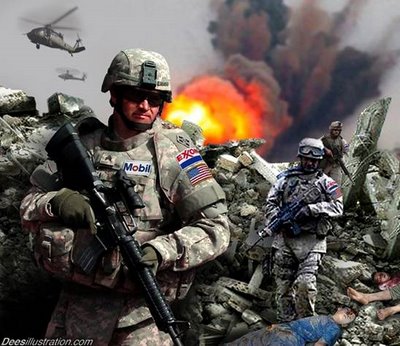














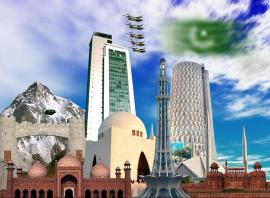
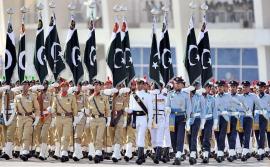


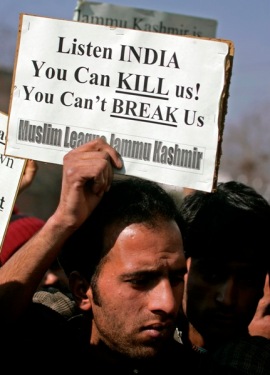
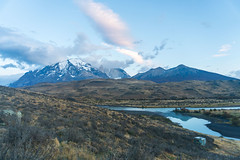



























Recent Comments